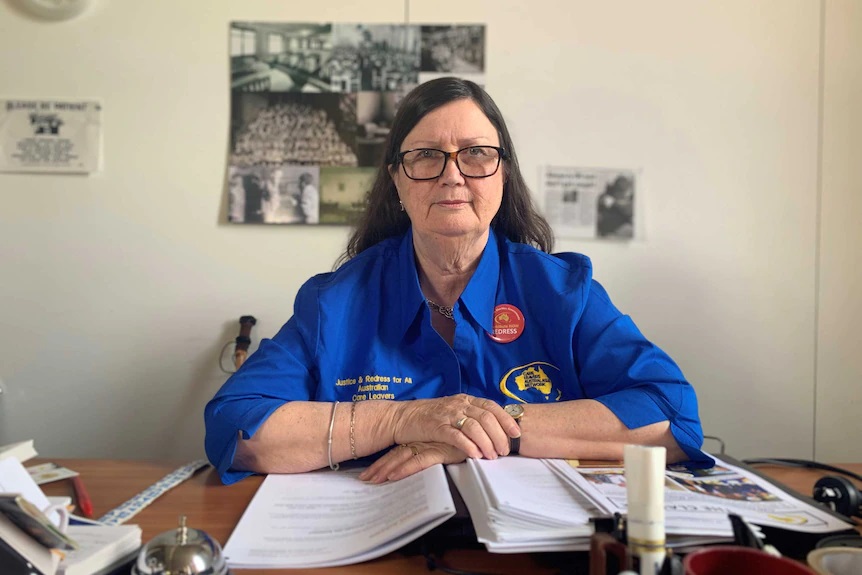(AUSTRALIA)
Australian Broadcasting Corporation - ABC [Sydney, Australia]
June 23, 2021
By Matthew Doran
Key points:
- The review into the national redress scheme recommended significant changes to the application process
- Social Services Minister Anne Ruston said the government was taking immediate action on 25 of the 38 recommendations
- The government did not back a recommendation to change the standard of proof required for a claim
Elderly and terminally ill survivors of child sexual abuse will be able to access advance compensation payments of up to $10,000, after an inquiry found the scheme designed to support victims is a bureaucratic nightmare.
In its first two years of operation, the national redress scheme has been criticised as incredibly slow, overly complicated and traumatising for survivors forced to recount horrific tales of abuse in the hope of securing financial support.
A review commissioned by the federal government has been released by Social Services Minister Anne Ruston and agreed with many of those sentiments.
One of the recommendations by senior public servant Robyn Kruk was to allow for early payments to some survivors, who may die before their application for redress was assessed.
“Many of the survivors that are coming forward are in their older years, because the abuse took place a long time ago,” Senator Ruston told the ABC.
“What we wanted to do was to make sure that we were able to give quick access to an advance payment.
“Bearing in mind that even in the unfortunate situation where somebody does pass away during the application process, their estate or their family will receive the payment — but of course, that is of no benefit to the survivor.”
The Minister said the payments would be offered “almost immediately” after a survivor had completed their application.
“Not only are we accepting what you’ve got to say, we actually believe you,” she said.
“And I think that goes a long way to giving the survivor the comfort that the process is underway and that they’re actually being listened to and believed.”
Government rejects recommendation to change standard of proof
The Kruk review recommended significant changes to the application process.
“Survivors stated that the application form is too complex for a population that may have literacy difficulties; there is not enough guidance on the level of detail required in the application form; the process is currently traumatising; and the scheme does not engage with survivors sufficiently, particularly regarding the progress of an application,” Ms Kruk wrote.
Senator Ruston said extra counselling services would be offered as part of those reforms.
“Unfortunately, you can’t do anything to mitigate against the entire traumatic experience,” the minister said.
“But making sure that you’ve got properly trained, appropriate, trauma-informed services that are available to applicants when they go through the process is the most important thing.”
One recommendation the government has not accepted was a call to change the standard of proof required for a redress claim — in other words, to what extent a survivor has to prove they were abused.
The review found inconsistencies in decision making, particularly when alleged abuse was conducted under the guise of invasive medical procedures.
Window for change is ‘now extremely limited’, review finds
Establishing the scheme was a recommendation of the Royal Commission into Institutional Responses to Child Sex Abuse, which estimated 60,000 people would be eligible for compensation across the country.
“We’ve had nearly 11,000 applications come forward to date, of which over 6,500 have been finalised and over half a billion dollars has been paid out to survivors,” Senator Ruston said.
“We’re obviously increasing the rate and the speed with which applications are being processed, and also we’re seeing an increase in the number of people that are coming forward now, as they see the scheme maturing.”
In completing her review, Ms Kruk argued reforms should be considered as a matter of urgency.
“The window for making meaningful changes to the scheme is now extremely limited,” Ms Kruk wrote.
Senator Ruston said the government was taking immediate action on 25 of the 38 recommendations, with any required legislation to be introduced to Parliament after the winter break.
Survivors put through ‘forensic overkill’
Leonie Sheedy, chief executive of the Care Leavers Australasia Network (CLAN) told the ABC prior to the review’s release that the process was far too difficult to navigate for “people who have lost everything”.
She was highly critical of the level of detail asked of survivors in the application process.
“It’s forensic overkill,” Ms Sheedy said.
“There are lots of people who need to be forensically investigated when they commit tax fraud, but it doesn’t seem to happen.
“But poor old abuse victims, who live these marginalised lives have to wait, and wait, and wait.”
Labor had been demanding the government reveal details of the proposed reforms.
“The national redress scheme has many flaws in it,” Shadow Social Services Minister Linda Burney said before the review was made public.
Ms Burney was in favour of an advance payment scheme being offered.
“Obviously, whatever is released would be deducted from the final payment,” she said.
The review did not recommend lifting the maximum amount a survivor can be offered from $150,000 to $200,000, which Labor had been calling for.

